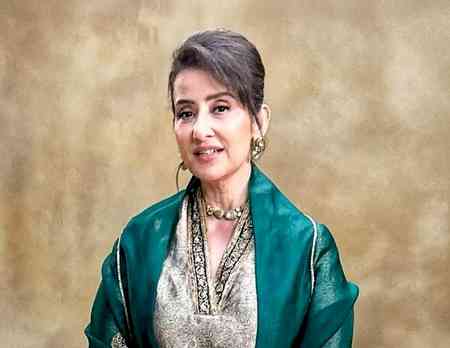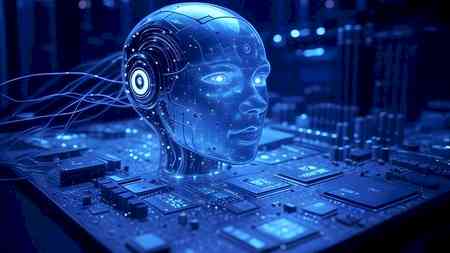FICCI unveils future-ready roadmap at a Conference on AI and Next-Gen Education!
The Federation of Indian Chambers of Commerce and Industry (FICCI), hosted the 2nd Edition of the FICCI Conference on “Future Forward: Reimagining Education for an AI-Driven World” at The Park, Hyderabad. The conference seeks to create a vibrant platform for dialogue, learning, and collaboration, positioning Telangana and India as leaders in building future-ready education ecosystems. It convened leading policymakers, academicians, and institutions for an in-depth dialogue on the rapid evolution of education powered by AI-driven innovations.

Hyderabad, November 27, 2025: The Federation of Indian Chambers of Commerce and Industry (FICCI), hosted the 2nd Edition of the FICCI Conference on “Future Forward: Reimagining Education for an AI-Driven World” at The Park, Hyderabad. The conference seeks to create a vibrant platform for dialogue, learning, and collaboration, positioning Telangana and India as leaders in building future-ready education ecosystems. It convened leading policymakers, academicians, and institutions for an in-depth dialogue on the rapid evolution of education powered by AI-driven innovations.
Prof. Anil Sahasrabuddhe, Chairman, National Educational Technology Forum (NETF) and National Assessment and Accreditation Council (NAAC); delivered the Keynote Address at the inauguration of the two-day event. The conference was graced by distinguished leaders including Fireside Chat Session: AI in Education & Skilling – Enabler or Disruptor? by Dr. Jayesh Ranjan, IAS, Special Chief Secretary to Government, Special Projects (SPEED) & Investment Cell and Department of Youth Advancement, Tourism, Culture & Sports, Govt. of Telangana; Prof. B. S. Murty, Director, IIT Hyderabad; and Prof. V. Balakista Reddy, Chairman, Telangana Council of Higher Education; T Muralidharan, Chairman, TMI Group; who shared their valuable insigh ts. Meela Jayadev, Co-Chairman, FICCI Telangana State Council; Dr. Sudhakar Rao, Conference Chair and Chairman, FICCI Telangana Education & Skilling Committee; were also present.
Prof. Anil Sahasrabuddhe, Chairman, National Educational Technology Forum (NETF) and National Assessment and Accreditation Council (NAAC); said, the key question before us is, what does the future hold? To answer that, we must reflect on the past two decades, when technology reshaped our lives and the country demonstrated remarkable resilience through the “Covidisation” era. Going forward, curriculum relevance is critical. It has remained unchanged for too long, though the pace of reform is now accelerating, rightly so, because outdated learning leads to unemployable graduates. Even in revising curriculum, AI can offer valuable inputs, but final judgment must rest with humans. AI draws from past data and may carry biases; therefore, tomorrow’s academicians must be equipped with critical thinking and analytical abilities. Education must keep pace with innovation, unlearning, relearning, reskilling and upskilling are now essential. Students need multidisciplinary exposure to stay employable, and equitable digital access must reach even the most remote areas. Quality must remain uncompromised. To achieve this, teachers must continuously upgrade themselves, as students today can access information instantly. The National Education Policy emphasises this through the new Malaviya Mission Teacher Training Centres in 116 universities, replacing earlier training structures. Faculty development programs are being strengthened with engaging content under Guru Setu, led by IITs Ropar, Gandhinagar and Madras, using advanced technologies including AI. Beyond AI, emerging technologies, AR, VR, Metaverse, and the AVGC sector, Animation, Visual Effects, Gamification and Comics, can make learning far more immersive. Multidisciplinary learning, such as engineering students understanding aspects of medicine and vice versa, encourages lateral thinking. Values also matter. The Universal Human Values Program, a three-week induction initiative, shapes students’ formative years, fostering harmony, collaboration and an institutional culture with minimal conflict. Despite rapid technological advances, the teacher’s role will only grow more vital, to interpret technology, guide students, and bridge knowledge with wisdom. This ultimately makes graduates more industry-ready. Yet industry can absorb only about 20–30% of them, so entrepreneurship education and job creation are imperative. Even this is an area where AI can support curriculum design. It is heartening that India has surged from just 400 registered start-ups a decade ago to 1,57,000 today, a testament to the nation’s growing entrepreneurial spirit.
Dr. Jayesh Ranjan, IAS, Special Chief Secretary to Government, Special Projects (SPEED) & Investment Cell and Department of Youth Advancement, Tourism, Culture & Sports, Govt. of Telangana; speaking at a fireside chat, addressing concerns that AI may dilute the purpose of education, he noted that its impact varies across stakeholders. Students will gain significantly, yet a divide may widen: urban, affluent, English-speaking families with access to devices and the internet will benefit more, while socio-economically weaker parents may find their children further disadvantaged. As part of the Hon’ble Prime Minister’s call for Viksit Bharat, Telangana is preparing its Vision 2047 and will release the Telangana Rising Vision Document on 9 December 2025. A key focus is Youth, the country’s future. The state envisions every young person equipped with the right blend of skills, technology, knowledge, and soft skills to secure strong job prospects, entrepreneurial opportunities, and even global mobility. A detailed roadmap is being created. Every student will undergo a comprehensive assessment, academic performance till Class 10, inputs from teachers and peers, and self-evaluation. This 360° understanding will guide personalised academic and career pathways aligned with the student’s strengths and passions. If parents insist on a different stream, the student will still proceed to Plus Two, followed by another aptitude check to redirect him appropriately with parental consent. Each student will thus receive individualised support, identifying suitable courses, securing placements, or even building business plans for self-employment. Such personalisation is possible only with AI; manually it would be impossible. AI will also help suggest courses, refine curriculum choices, and train students for interviews. Mastering AI is essential, or we risk becoming redundant. While he is optimistic about technology, he remains concerned about the digital divide and the mindset of “technology is not for me.” The solution, he said, lies in using technology to solve real problems and showcasing these successes. When people see tangible benefits, acceptance grows, confidence rises, and technology phobia fades.
Prof. V. Balakista Reddy, Chairman, Telangana Council of Higher Education; said, technology has always been part of human progress, but the last two and a half decades have brought unprecedented transformation. Rapid innovations, discoveries, and inventions have made education increasingly techno-driven, reshaping how we learn, teach and prepare for the future. As a young nation with a predominantly youthful population, relevant and employment-oriented education is crucial. India is poised to play an increasingly significant role globally, and an educated, future-ready population will be central to realising these aspirations. Our education system will be influenced by global developments, policies, private participation, and technological shifts. Even the “Covidisation” phase accelerated digital transformation in learning. Yet, the system faces a persistent challenge like curriculum relevance. After consultations with stakeholders in Telangana, it is clear that updating the curriculum is the most urgent reform. Telangana is already aligning nearly 20% of its syllabus with emerging technologies. To avoid future shocks, our education must be forward-looking, shedding outdated courses and embracing innovation that matches current and future national needs. We are in a transition, from developing to developed, from third world to the world’s third-largest economy, from importer to exporter. Education will be the pivotal force that powers this transformation.
T Muralidharan, Chairman, TMI Group; said, let me share a statistic from a study we did to assess the performance of the graduates after they join the first job, from around ten companies, the variation of performance of top 10% and bottom 10% is anywhere between 10 to 30 times. This shows the quality of education. We worked across 500 employers, both IT and non-IT, without doubt we can say, AI will replace 40% to 50% of the vacancies in the India’s job market. AI may not replace the entire role, but if it takes away 60% of the job, we need less people to do the same job, which we are already experiencing it in the corporate world. AI will be the hell of the human beings, its all-pervasive, its already there, impacting us, positive or negative. Children will embrace AI faster, the poor children will do it faster because they are hungry to learn, the elders are slow to learn. Today, application of the knowledge is more important, than learning the subject in depth.
Meela Jayadev, Co-Chairman, FICCI Telangana State Council; said, the conference aims to reflect on how institutions can empower the learners and strengthen the educators and build a future.
Dr. Sudhakar Rao, Conference Chair and Chairman, FICCI Telangana Education & Skilling Committee; we are living in an interesting world, not just technology is impacting us, a new thing called AI which is all pervasive, and it is going to impact in ways much more than we can imagine. As academia we have always been a step behind in accepting and adopting the evolving technology, how do we close this gap? Is something the Conference will address.
Exclusively curated for education leaders, the conference brought together top management from higher education institutions, including Chancellors, Vice Chancellors, Deans, Registrars, and Directors, along with delegates from technical and non-technical colleges, and visionary founders, CEOs, chairpersons, directors, and school principals.
The event offered a high-impact platform to engage with educational thought leaders and decision-makers. It facilitated the exchange of innovative ideas, best practices, and global perspectives, paving the way for international collaborations and meaningful partnerships to shape the future of education. Delegates experienced unmatched opportunities for networking, learning, and cross-border academic engagement.
The central focus of the conference was to explore how AI is transforming education, skilling, and employability. The key themes included integrating skilling frameworks and industry partnerships into higher education. Preparing students for emerging, sustainability-driven sectors such as the green economy and semiconductors. Strengthening school education through teacher training, digital tools, inclusivity, and student well-being. Equipping institutional leaders with design thinking and student-centred leadership approaches. Enhancing global collaboration with universities and international stakeholders.
On day 1, the Conference featured, besides the inaugural session, a Fireside Chat on AI in Education, and panel discussions on Skilling & Employability in Higher Education, Education for the Green Economy and Semiconductor Opportunities, and Strengthening School Education. The agenda for day 2 comprises of parallel workshops tailored for institutional leaders and faculty, including Design Thinking for Education Leaders, Responsible Al in Education Student-Cantered Leadership for Principals and Deans, and Innovation in Teaching & Learning. The day will conclude with a session on Future Collaborations with Global Universities.


 City Air News
City Air News 










